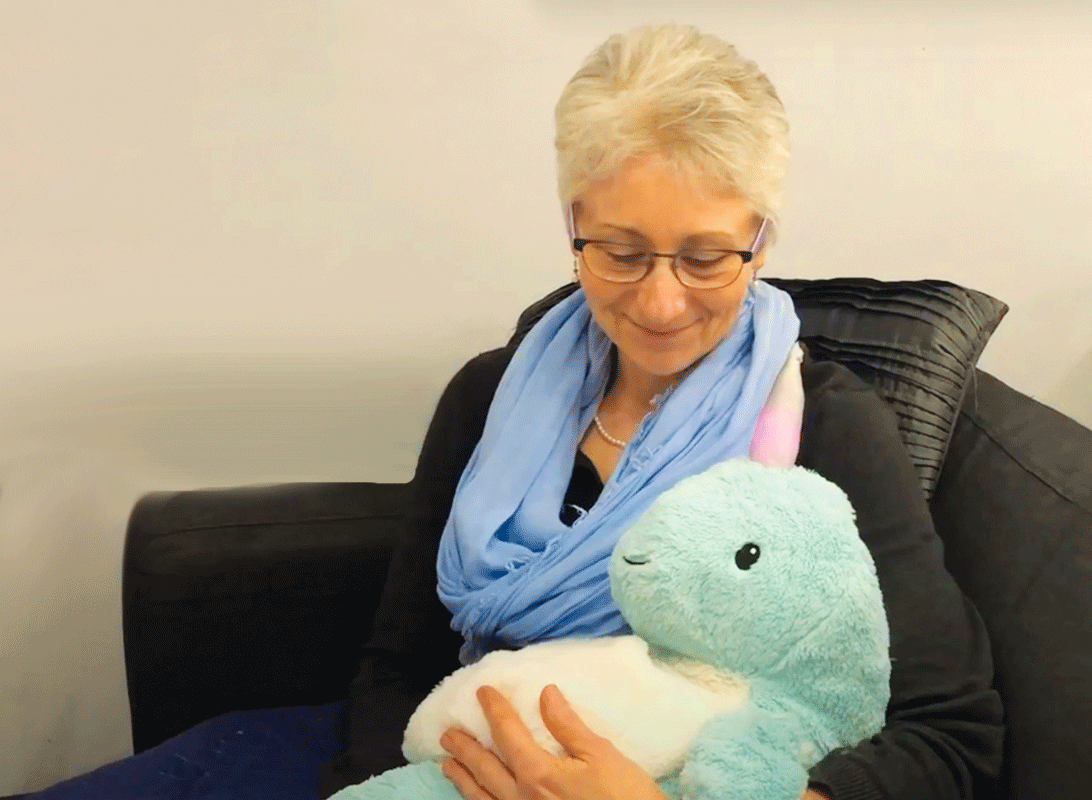
SnuggleBot: a new cuddly companion
Introducing the “Snugglebot” a cuddly robotic companion that needs your love and attention. It needs to be taken care of, cuddled and kept warm. It’s physically comforting (soft, warm and weighted), and engaging. Its tusk lights up and it wiggles to get attention or to show appreciation when it’s hugged.
This robot prototype is the brainchild of Danika Passler Bates, a student in the Department of Computer Science and a recipient of an Undergraduate Summer Research Award (URA). She first presented her idea this past summer, at the 2020 International Conference on Human-Agent Interaction. After publishing a short paper and video, it was picked up by IEEE Spectrum Magazine as a Video Friday feature.

Danika Passler Bates, Inventor of the “SnuggleBot”.
Danika saw a need to help people feel better, especially those in isolation during the pandemic. Her research indicated that caring for something (like a pet) often improves an individual’s wellness and motivation. The person has to take care of it, by keeping the microwaveable compress (in its pouch) warm, helping to create a connection.
“SnuggleBot is a cuddly companion robot designed to help everyday people living with loneliness and related feelings. Existing companion robots are either not used or are used in clinical settings and are not accessible due to their high cost, so we aimed to build the simplest robot we could that would actually help people,” explains Danika.
Danika says she chose the narwhal stuffed animal design for its huggable size and horn.
“I wanted a simple way for the robot to communicate without needing language. The horn lights up with different colours depending on the robot’s current needs. (It is also cute).”
Currently, Danika is working on a senior project, under the supervision of Dr. Jim Young, in the Department of Computer Science, Human-Computer Interaction (HCI Lab), where she continues the development of a social robot that can be deployed into people’s homes. Her research will continue to examine how people interact with the robot and if it can indeed help them feel better.
Research at the University of Manitoba is partially supported by funding from the Government of Canada Research Support Fund.






